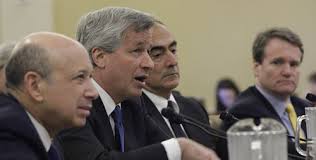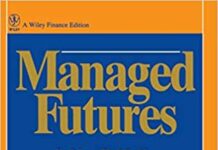Some of the most significant financial institutions and trading firms on Wall Street are incorrigible.
A decade after the 2008 market crash, some of Wall Street’s most significant trading firms continue to operate in the shadows, manipulate markets, launder money, and re-write the rules of swaps payments when they have the leverage and power to do so.
Those are the themes of just two stories in one day from Bloomberg News that give the average investor some critical insights into what it means to be a professional trader in the world of financial engineering and leverage trading, which is done with no or minimal interference from regulators.
Just as the average American is concerned about maxing out their 401(k) and getting a raise, the largest financial institutions in the country are busy trying to make big money on the fringes of lawful trading. Here are two case studies straight from the news. Both show the sharp disconnect between Wall Street and Main Street regarding their ability to generate money in two separate environments.
Getting Rich By Re-Writing the Rules
Financial engineering developed in the 1980s with the marriage of leveraged investment products (especially options-based instruments), computer-based strategies, and non-market-traded instruments. This primarily happened between significant investment and trading firms and large corporate and institutional investors in the over-the-counter market. These strategies centered on sharing market and payment risks over time and were codified in detailed contracts, most often in swaps agreements.

In a recent Bloomberg account, some of the nation’s largest trading firms convinced some swaps clients that held bonds to miss the interest payment on their bonds so that money could be diverted and remain in the swaps in exchange for a loan from the trading firm. This meant the swap holders were not paid even though the issuer had the money. The firms cited in the Bloomberg account were Blackstone, JPMorgan, Goldman Sachs, Apollo Global Management, and Ares Management Corp.
The instruments involved were credit default swaps (CDS), the same instruments that caused the 2008 market crash. CDS are contracts that insure against bond issuer defaults or bankruptcy.
What made the news is that some CDS holders brought a lawsuit about diversifying the CDS payments to the swaps issuers when some traders used the money to cover some of their “trader’s derivatives bets,” Bloomberg said.
The companies named in the article that participated in the diversion of payments were radio broadcaster iHeartMedia Inc., paper maker Norske Skog AS, and Spanish gaming company Codere SA.
While esoteric, these events provide a modest insight into a trading world that average investors will never see and even fewer will ever understand. However, just like the trading activity that led to the 2008 recession, this $8 trillion market still operates mainly in the shadows of regulators.
No Surprise: Money Laundering Continues
Just as more Americans hear more about Russian oligarchs than they ever wanted to know, there is more news that the Russians and others continue to launder their money in Europe with little or no interference from regulators.
This Bloomberg news report found that “more European banks have been drawn into the scandal surrounding dirty Russian money. Allegations of suspicious transfers widened further this week to include Austrian and Dutch institutions. The difficulty facing European regulators investigating these crimes, which by one estimate may total $2 trillion globally each year, is that no central agency is charged with tackling the problem.” Among the culprits are Nordic and Baltic banks that handle Russian money for laundering.
The article puts this in perspective when it says there has been “a decade of serial crises” involving money laundering. There is no solution on the horizon. This could make many average citizens wonder what financial regulators in Europe and the U.S. do daily. Under the Trump administration, the answer is obvious: they do not interfere with the largest banks in the world. This answer remains valid because, in today’s neoliberal economic system, there are not supposed to be any regulators with teeth. This is what we have today. We will very likely have it for many tomorrow.











